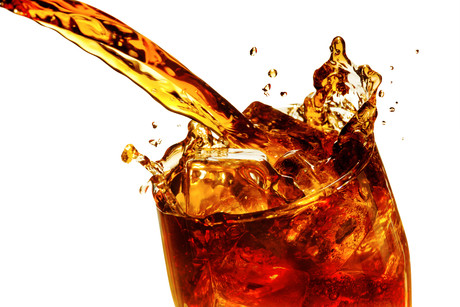How should manufacturers respond to sugar taxes?

A soft drinks sugar tax was introduced in the UK on 6 April, leaving manufacturers to make a number of decisions. Should they change the sugar content of their products at the risk of losing consumers? And how will increasing the cost of their products impact customer decisions? Data and analytics company GlobalData said that they should be offering consumers a choice.
The sugar levy states that manufacturers must pay 18 p/L for drinks containing 5–8 g/100 mL of sugar and this increases to 24 p/L for drinks with more than 8 g/100 mL. Those exempt from these taxes include pure fruit juices that do not have added sugar and products that have a high milk content as they provide necessary calcium.
Since plans to introduce the levy were announced in March 2016, about 50% of manufacturers have reduced the sugar content of their drinks in anticipation. These include Ribena halving their sugar content and Lucozade cutting sugar by one-third.
However, the Treasury still predicts that the tax will raise about £240 million a year, as some soft drinks such as Pepsi and Coca-Cola continue to use the same high-sugar recipe (both containing between 10 and 11 g/100 mL). This money will help fund further obesity prevention methods such as new sports facilities in schools and healthy breakfast clubs.
Public Health Minister Steve Brine MP explained, "Our teenagers consume nearly a bathtub of sugary drinks each year on average, fuelling a worrying obesity trend in this country. The Soft Drinks Industry Levy is groundbreaking policy that will help to reduce sugar intake, whilst funding sports programs and nutritious breakfast clubs for children."
According to GlobalData Consumer Analyst Jonathan Davison, it should not necessarily be a battle between reformulating products or failing to change, but instead they should give consumers the choice.
"For two years soft drinks companies have debated whether to reformulate their products and risk jeopardising consumer loyalty, or change nothing and risk pricing consumers away with tax-imposed RSP increases. The most effective strategy could well be to do both: appease the loyal fans of core brands like Coca-Cola, for whom taste is everything, by keeping ingredients the same whilst offering a plethora of new sugar-free alternatives like Coke Zero Sugar. This effectively provides companies with a 'safety net' of products protected from taxation and, crucially, also ensures consumers still have an all-important choice — take that away and then the entire industry suffers."
So far, the levy has received a mixed response from consumers, and Davison warned that enforcing policies that are too strict are unlikely to be successful in the long term.
"The scope of the sugar tax does not end with soft drinks; if successful the government will almost certainly look into a levy for sugary food products as well. But a word of warning: Denmark tried something similar in 2011 with its own 'fat tax'. It was abolished after just 15 months having caused inflation, widespread job cuts and increased cross-border trade, all whilst having little impact on consumption trends. Sometimes, less is more."
Sugary drinks have been highlighted as a huge contributor to obesity, and the UK's decision to introduce this tax follows 26 other countries, including Ireland and Mexico, who have increased the cost of sugary drinks in an attempt to create a healthier nation. While Australia has come under pressure to do the same, this has been unsuccessful so far with Health Minister Greg Hunt implying food labelling laws and voluntary codes of conduct are sufficient preventative measures.
Traceability grants to help boost Aussie exports
The $4m traceability grant round has been opened by the Australian Government to help ensure the...
Kraft Heinz appoints Steve Cahillane as CEO
Steve Cahillane will join Kraft Heinz as CEO on 1 January 2026.
Mars receives final approval for its Kellanova acquisition
The European Commission has given final approval for the merger, paving the way to unite the...








